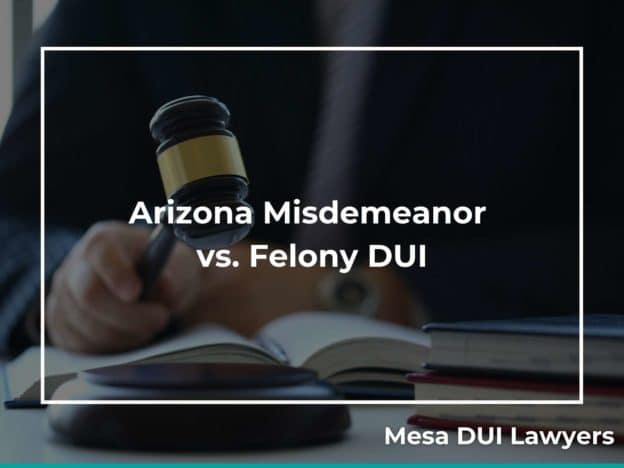Why Should You Prove That Aggravating Factors Are Not Relevant To Your Sentencing
Being convicted of a crime is already a horrible situation that no one wants to endure. You may already be subject to time in jail or prison, fines, community service, court-ordered classes, probation, and more. A criminal conviction could jeopardize your career, education, and even your relationships with friends and family. But Arizona courts have an interest in keeping criminals from harming the general public, so additional penalties can be imposed if aggravating factors are present in the commission of a crime. A major part of your defense will be proving why these aggravating factors shouldn’t be relevant to your sentencing. If you have any additional questions about aggravating factors and your Arizona criminal charges after reading the following, call our firm for your free consultation at 480-448-9800.
Arizona Aggravating Factors – A.R.S. § 13-701
Factors that make the crime more severe and punishable are called aggravating factors. Factors that should be used in favor of leniency towards the defendant are known as mitigating factors. Some crimes have specific aggravating factors. For example, in Arizona, the aggravating factors for a DUI are a passenger under 15, driving the wrong way down a highway, driving on a suspended or otherwise restricted license, driving while ordered to have an IID installed, or receiving 3 DUIs in 7 years. A DUI would typically be a misdemeanor in Arizona, but the presence of any of these factors increases the charge to a felony. Both aggravating and mitigating factors are set forth by A.R.S. § 13-701. The aggravating factors include:
- If it isn’t already part of the criminal charge, inflicting or threatening to inflict great bodily injury
- Use or threat of a deadly weapon or dangerous instrument
- Use of an accomplice
- The value of any property damaged in the commission of the crime
- Especially heinous, cruel, or depraved conduct
- If the crime was committed in exchange for pecuniary value
- If the defendant was a public servant and committed the crime while on official duty
- The victim or the victim’s family (if the victim died) suffered physical, emotional, or financial harm
- The crime caused the death of an unborn child at any stage of development
- If the defendant has a prior felony conviction from no more than 10 years ago
- The defendant wore body armor while committing the crime
- “Body armor” is given a broad definition under Arizona law. A.R.S. § 13-3116 defines it as “clothing or equipment designed in whole or in part to minimize the risk of injury from a deadly weapon.” Misconduct involving body armor is a Class 4 felony in Arizona.
- The victim was 65 years or older or had a disability that substantially limits one or more major life activities
- The defendant was an appointed fiduciary for the victim and violated those obligations
- The defendant committed the crime out of malice for the victim’s group or perceived group (hate crime)
- For a DUI, the driver had a BAC of 0.15 or higher
- Lying in wait or ambushing the victim as part of the crime
- The crime occurred in a child’s presence
- The crime was committed in retaliation for the victim reporting a crime or being involved with a law enforcement agency
- The defendant impersonated a peace officer
- The defendant used either a remote stun gun or an authorized remote stun gun in the commission of the crime
- Leaving the scene of an accident
- If the defendant lured or enticed the victim away from a shelter meant for foster children, the homeless, etc.
- If the defendant committed the crime out of malice toward the police
- If the defendant wore a mask or disguise in the commission of the crime
- Any other factors deemed relevant by the court
Aggravated Penalties
Aggravating factors can potentially add years to your jail or prison sentence after a criminal conviction in Arizona. For first-time felony offenders, there are standard prison sentences based on the degree of felony and presence of aggravating factors, set forth by A.R.S. 13-702.
- Class 6: 0.5 to 1.5 years in prison, 2 years if aggravated
- Class 5: 0.75 to 2 years in prison, 2.5 years if aggravated
- Class 4: 1.5 to 3 years in prison, 3.75 years if aggravated
- Class 3: 2.5 to 7 years in prison, 8.75 years if aggravated
- Class 2: 4 to 10 years in prison, 12.5 years if aggravated
What Can I Do About Aggravating Factors in My Case?
If aggravating factors are present in your case, you could be facing even more time and penalties than you were original. There are a few ways you can go about navigating aggravating factors in your case. The number of aggravating factors and their severity will affect how much can be done about your sentencing. It is best to review your specific situation with an experienced Arizona criminal defense attorney. For your free consultation, call 480-448-9800.
Cancel Out with Mitigating Factors
As mentioned above, A.R.S. § 13-701 lays out mitigating factors in addition to aggravating factors. They are:
- The defendant’s age
- The defendant’s capacity to understand the wrongfulness of their actions
- If the defendant was under unusual or substantial duress
- If the defendant had a minor degree of participation in the crime
- If there was an accident, the defendant stopped and provided information as required by Arizona law
- Any other factors deemed relevant by the court
Mitigating factors can be used to argue for a reduced sentence, but if there are several aggravating factors present, you can at least try to even them out with mitigating factors.
Show the Court You’re Proactively Working on Yourself
Sometimes, it can be useful to come before the judge already had completed anger management, drug and alcohol rehab, or any other treatment relevant to the issues that bring you to court in the first place. Our lawyers can help you find relevant and affordable programs that could convince the court that you should receive penalties on the lower end of the sentencing guidelines.
Try to Exclude Evidence of Aggravating Factors
In some cases, the evidence is so clear-cut that the best the defendant can hope for is a forgiving plea deal from the prosecution. However, evidence of aggravating factors may be circumstantial or obtained a significant amount of time after the crime occurred. If you can’t prove that you didn’t commit the crime, you can at least try to show the prosecution can’t prove aggravating factors necessary to increase your penalties. There could be constitutional violations or chain of custody errors that would make some of the evidence the prosecution wants to use against you inadmissible in court.
Find Character Witnesses
You may have the opportunity to have character witnesses testify to your good nature, or even write letters if they can’t appear in person. If the person is especially prominent in the community or known for charitable activities, their opinions could be more effective in convincing the judge to be lenient with your sentencing. However, the prosecution may also have the opportunity to use character witnesses against you. You should discuss your case with an experienced defense attorney if you plan on utilizing character witness testimony to negate aggravating factors.
Experienced Arizona Defense Representation Against Serious Criminal Charges
Whether you’re facing a misdemeanor or felony in Arizona, you should be taking the matter extremely seriously. Aggravating factors can mean a jail or prison sentence that could essentially destroy your life, and possibly your family’s as well. It’s crucial that you work swiftly on your legal strategy to decrease the amount of penalties you will face. To learn more about high-quality private defense representation with affordable prices and payment plans, fill our online form or call 480-448-9800 to schedule your free consultation.
Mesa DUI Lawyers
1731 West Baseline Rd., Ste 101
Mesa, AZ 85202
Website: https://mesaduilawyers.co/
Office: (480) 833-8000


